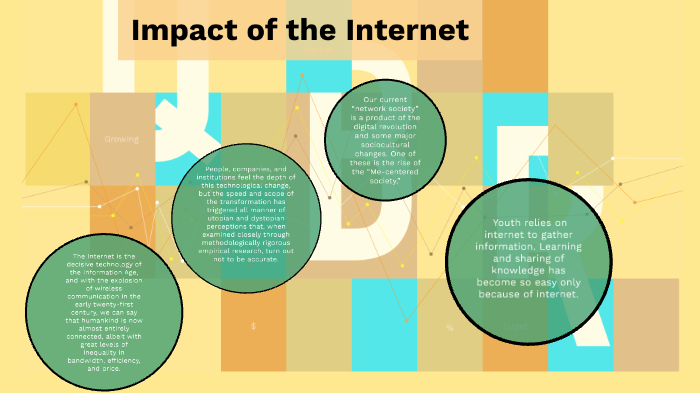
Impact of the Internet on Fiction: 8 Writers Discuss
The impact of the internet on fiction is a double-edged sword that has reshaped the landscape of storytelling in profound ways. As writers grapple with modern fiction challenges, the traditional boundaries of narrative are becoming increasingly blurred. In this digital age, the ways we engage with literature have shifted dramatically, with social media often dictating trends and shaping narratives. Readers, now transformed into audiences, influence what is published through tweets, likes, and shares, thereby raising questions regarding authenticity and artistic expression. While some celebrate the accessibility of stories and the democratization of literature, others lament the loss of depth and candidness in storytelling, marking a significant cultural shift in how we relate to fictional worlds.
The influence of the online world on literary creativity prompts us to consider how technology redefines imaginative writing. As authors navigate the evolving dynamics of fiction and the internet, they encounter unique challenges that reflect broader societal shifts. The convenience of digital access has made research simpler, yet it has also altered reader engagement, resulting in fluctuating attention spans. The rise of multimedia storytelling further illustrates how different platforms engage audiences in innovative ways, while also prompting critical reflections on the essence of narrative. Ultimately, understanding how online interactions impact storytelling allows writers to both capitalize on new opportunities and confront the risks associated with this ever-connected landscape.
The Internet: A Double-Edged Sword for Fiction
The advent of the internet has had profound implications for the world of fiction. On one hand, it offers unparalleled access to a vast array of resources that writers can utilize for research and inspiration. From digital archives of newspapers to literary forums, the internet serves as a treasure trove of information that was previously confined to libraries and physical books. Modern authors can conduct thorough research on historical contexts, cultural nuances, and character backgrounds within minutes, enhancing the depth and authenticity of their narratives. This ability to gather information expediently allows for more complex and well-informed fiction that resonates with readers in a digital age.
However, this ease of access can also diminish the immersive experience that traditional reading provides. As immediate gratification becomes the norm, the brain’s engagement in deep reading diminishes. Many contemporary readers find themselves multitasking, fluttering between digital texts and social media platforms, risking the loss of introspection that fiction offers. This transition from reader to audience changes the relationship between the consumer and the text, leading to a diluted appreciation of storytelling’s ability to convey rich emotional truths and critical reflections on the human experience.
Social Media’s Influence on Literary Taste
Social media has indelibly altered the landscape of literary taste and the way stories are shared and celebrated. The instantaneous feedback loop that platforms like Twitter and Instagram create forces writers to consider their audience’s preferences in real-time. Unlike past generations, where literary taste was often curated by critics and established literary figures, today’s books are frequently propelled to success by viral trends and social media endorsements. Thus, authors may feel pressured to produce work that garners attention rather than challenging readers or exploring subjects that necessitate deeper contemplation.
While this environment fosters visibility for diverse voices, it can also stifle innovation and risk-taking in fiction. Writers might hesitate to delve into complex themes, fearing that they won’t achieve the ‘likeability’ needed for social media success. This shift raises questions about the future of literary art; will narratives be diluted to cater to the sensibilities of fast-scrolling audiences, or will there be a resurgence of fiction that prioritizes emotional and intellectual engagement over instant satisfaction?
Modern Fiction Challenges in the Digital Age
As the digital landscape evolves, it presents unique challenges for modern fiction. One significant hurdle is the reduction of reader attention spans; continuous exposure to rapid content on the internet can lead to diminished focus when it comes to engaging with longer narratives. Authors are now tasked with crafting compelling openings to hook readers quickly rather than allowing stories to unfold at their natural pace. This shift mirrors larger cultural trends towards brevity and speed, making it harder for complex, nuanced storytelling to break through the noise.
Moreover, the prevalence of online distractions can turn reading from a cherished form of escapism into a task laden with interruption. Writers must navigate the challenge of drawing readers into their fiction while competing against a backdrop of competing media and entertainment forms. The internet, while facilitating an increased dissemination of stories, simultaneously demands a reconsideration of narrative technique that aligns with a more distracted audience, leading to questions about how we can uphold the integrity of storytelling in an environment increasingly bent on superficial engagement.
How the Internet is Changing Literature
The internet has not only affected how stories are written but has also transformed the very nature of literature itself. Digital platforms have birthed new genres and formats, such as flash fiction and interactive narratives, pushing boundaries and encouraging innovation. Writers are now able to engage readers through multimedia and collaborative storytelling, a feat that was challenging in the traditional publishing landscape. This evolution encourages a diversified literary culture, reflecting a wider array of human experiences and voices.
Moreover, the transition to digital reading through eBooks and literary apps has further democratized access to literature, allowing readers from varied backgrounds to engage with texts that once felt out of reach. Yet, these changes also lead to the commodification of literature, with algorithms determining what is visible and popular. As authors navigate this digital terrain, they must be vigilant not to lose the essence of what makes storytelling powerful and rich, ensuring that the core themes of humanity are preserved even amidst the rapid changes reshaping their craft.
Digital Age and Storytelling: New Possibilities
In the age of digital storytelling, opportunities abound for writers to experiment with narrative forms that transcend traditional boundaries. Online platforms allow authors to reach global audiences instantly, creating connections that were previously unimaginable. Genres that were once niche can now gain significant traction through the power of social sharing, enabling indie authors and marginalized voices to captivate readers. This shift fosters a vibrant literary ecosystem, encouraging experimentation with storytelling techniques and formats that reflect contemporary issues.
Yet, this very access to vast audiences can lead to complacency in narrative depth. Writers must balance the excitement of expansive reach with a commitment to crafting meaningful stories that challenge and resonate deeply. As technology continues to evolve, it calls for a reexamination of how stories are told and received, pushing authors to not only embrace new mediums but also to remain vigilant in preserving the transformative power of effective storytelling. The threat of dilution looms, yet the potential for profound connection and understanding through innovative narrative practices remains ever-present.
The Role of Reader Engagement in Digital Fiction
In the current literary landscape, the role of reader engagement has dramatically shifted, largely due to the rise of the internet and social media platforms. Writers today are increasingly interested in fostering a community around their work, seeing their readers as active participants rather than passive consumers of fiction. This level of engagement can enhance the experience of storytelling; for instance, authors frequently gather feedback from readers before completing their works, which can inform the narrative direction and character development.
However, this shift places pressure on authors to maintain a constant online presence and cultivate relationships that may detract from the time spent on their craft. Navigating this balance is crucial for modern writers, as they must strive to provide authentic, impactful narratives while also building a brand that resonates in a digital society. By finding a way to simultaneously satisfy their artistic integrity and their audience’s expectations, authors can contribute to a richer, more inclusive literary community.
Internet-Driven Trends in Storytelling
The internet has initiated several storytelling trends that are redefining the landscape of modern fiction. For example, serialized storytelling has gained popularity through platforms like Wattpad, where authors release their works in installments, allowing for ongoing reader feedback and adaptation. This method not only encourages participatory culture but also invigorates community dialogue around narratives, leading to collaborative storytelling ventures that can shape the final product.
Conversely, these trends can dilute the focus on story quality, with the continuous need for content potentially leading to work that prioritizes quantity over depth. As writers adapt to these internet-driven patterns, the challenge becomes maintaining passion and purpose in their narratives amidst the competitive demands of digital storytelling. Balancing creative expression with audience expectations is essential for authors to ensure that they are not merely responding to trends but actively crafting literature that embodies the richness and complexity of the human experience.
Facing the Emotional Truth: The Internet’s Influence on Authenticity
One of the most critical conversations in contemporary fiction is the impact of the internet on emotional authenticity. In a landscape dominated by social media, authors often grapple with the pressure to present curated lives and narratives that may pander to societal expectations rather than exploring genuine human experiences. This tension raises questions about the authenticity of storytelling in an era where public perception can dictate personal and creative narratives.
As writers navigate this environment, the challenge lies in prioritizing emotional truth despite external influences. Crafting stories that resonate on a profound level requires vulnerability, a quality that can be compromised when the eyes of the internet loom large. Yet, many authors strive to create works that reflect the realities of human emotions, emphasizing that true art stems from a commitment to portraying experiences that mirror the complexity of life, fostering empathy and connection among readers.
Navigating Research in Fiction Writing Today
Research has always been an integral part of writing fiction, but the internet has revolutionized the way writers approach this essential task. The ease with which authors can now access a plethora of information—from historical events to niche subjects—has enriched storytelling and provided avenues for deeper narrative development. For instance, writers can tap into community forums and expert sources to gain insights into cultures or professions that enhance character authenticity.
However, accessibility also brings challenges; the vast amount of available information can lead to an overwhelming sense of choice and the danger of spreading oneself too thin. Writers must remain discerning, ensuring that their research serves to enhance their work without veering into misinformation. As digital literacy becomes increasingly vital, the writer’s role involves navigating and curating reliable sources to inform their narratives while maintaining the imaginative essence that defines compelling fiction.
Frequently Asked Questions
How is the impact of the internet on fiction affecting storytelling techniques?
The impact of the internet on fiction has significantly altered storytelling techniques. Writers today often must navigate the challenge of maintaining personal authenticity while considering a vast online audience. This shift has transformed readers into active participants rather than passive consumers, influencing how stories are structured and what themes are explored. As social media plays a pivotal role, traditional narrative dilemmas—like characters getting lost—are less common, as connectivity is a given in our digital age.
In what ways are modern fiction challenges related to the internet and storytelling?
Modern fiction faces unique challenges related to the internet, such as maintaining reader engagement amidst the vast array of online distractions. The immediacy and instant gratification provided by digital platforms can lead to shorter attention spans, pressuring authors to craft succinct and compelling narratives. Additionally, the influence of social media on public taste can deter writers from pursuing challenging or complex themes, as they feel compelled to cater to popular demand rather than exploring deeper truths.
How does social media affect writing in the context of fiction?
Social media profoundly affects writing in the context of fiction by shaping audience expectations and feedback immediacy. Writers are increasingly aware of public reactions that can dictate the commercial viability of their work. This shift has led some authors to prioritize market-friendly content over innovative storytelling, creating a landscape where the authenticity of personal narratives may be overshadowed by trending topics or popular influencers.
Is the internet changing literature in a positive or negative way?
The internet is changing literature in both positive and negative ways. On the one hand, it provides unprecedented access to research materials, historical archives, and diverse narratives. Writers can also reach wider audiences more easily than ever before. However, the downsides include the potential dilution of literary quality due to commercial pressures and the overwhelming influence of social media on public taste, which can undermine the exploration of complex themes.
What role does the digital age play in the evolution of storytelling?
The digital age plays a critical role in the evolution of storytelling by transforming how stories are disseminated and consumed. E-books, online publishing, and social media platforms have democratized the literary landscape, allowing for diverse voices to emerge. However, this accessibility comes with challenges, such as the competition for readers’ limited attention and the need for writers to adapt to rapidly changing audience preferences influenced by digital trends.
How has the ease of research in the digital age impacted fiction writing?
The ease of research in the digital age has significantly impacted fiction writing by streamlining access to information and resources. Writers can quickly gather data from historical archives, scholarly articles, and digital databases, enhancing the depth and accuracy of their narratives. This accessibility allows for more intricate plots and well-rounded characters, although it can sometimes lead to over-reliance on superficial online content rather than immersive research.
What is the significance of emotional truth in fiction in the age of the internet?
Emotional truth remains a vital aspect of fiction, especially in the age of the internet where noise and distraction abound. While factual accuracy is accessible online, fiction has the unique power to convey complex emotional landscapes and human experiences. Connecting with readers on an emotional level is essential, as it enables writers to transcend mere facts and engage readers’ empathy and imagination amidst the overwhelming digital backdrop.
How has the relationship between readers and audiences changed due to the internet’s influence on fiction?
The relationship between readers and audiences has evolved under the internet’s influence, as readers are now more than passive consumers; they interact, comment, and participate in public discussions about works. This shift means that authors must be more attuned to the collective voice of their audience, which can dilute individual perspectives and creativity as writers navigate the complex dynamics of real-time feedback and public opinion.
Are certain literary elements losing their importance due to internet accessibility?
Certain literary elements, such as nuanced character development and intricate plots that require immersion and time to unfold, may be losing importance due to the rapid accessibility of information online. With the immediate gratification of quick reads and viral content, storytelling may suffer as authors feel pressured to deliver content that aligns with fast-paced digital consumption, potentially sacrificing depth and complexity.
Can the internet enhance or limit the exploration of themes in modern fiction?
The internet can both enhance and limit the exploration of themes in modern fiction. On one hand, it provides writers with platforms to discuss diverse topics, broadening the scope of narrative possibilities. On the other hand, the focus on trending themes driven by social media can confine writers to a formulaic approach, steering them away from innovative explorations of challenging or unconventional subjects.
| Key Points | Contribution of the Internet | Challenges of the Internet |
|---|---|---|
| Evolution of Fiction | The internet has allowed for quick research and access to a multitude of information, enriching the writing process. | Social media has turned readers into audiences, which may dilute the personal experience of reading and writing fiction. |
| Accessibility of Materials | E-books and online book discussions have made literature more accessible to a wider audience. | Critics and traditional tastemakers have less influence, making it harder for challenging works to find readers. |
| Historical Context for Writers | Digital archives and resources have transformed the research process for writers, providing depth and context for storytelling. | Immediate access to social trends can overshadow emotional depth and personal truths in narratives. |
| Shift in Communication | Writers can engage with readers more directly through social media, garnering immediate responses to their work. | The imperative for originality may diminish as writers cater to popular trends rather than personal expression. |
Summary
The impact of the internet on fiction is profound and multifaceted, shaping how stories are told and consumed in the modern age. While the internet has democratized access to literature and facilitated instant research, it has also transformed the intimate relationship between writers and readers into a public spectacle. Many writers lament the loss of privacy and the overpowering influence of mass opinion, which can stifle creativity and emotional authenticity. As a result, the essence of fiction—the deep exploration of human experiences—may be overshadowed by trends dictated by social media. Ultimately, while the internet offers valuable tools that enhance storytelling, it poses challenges that could reshape the future of fiction in ways we are only beginning to understand.


